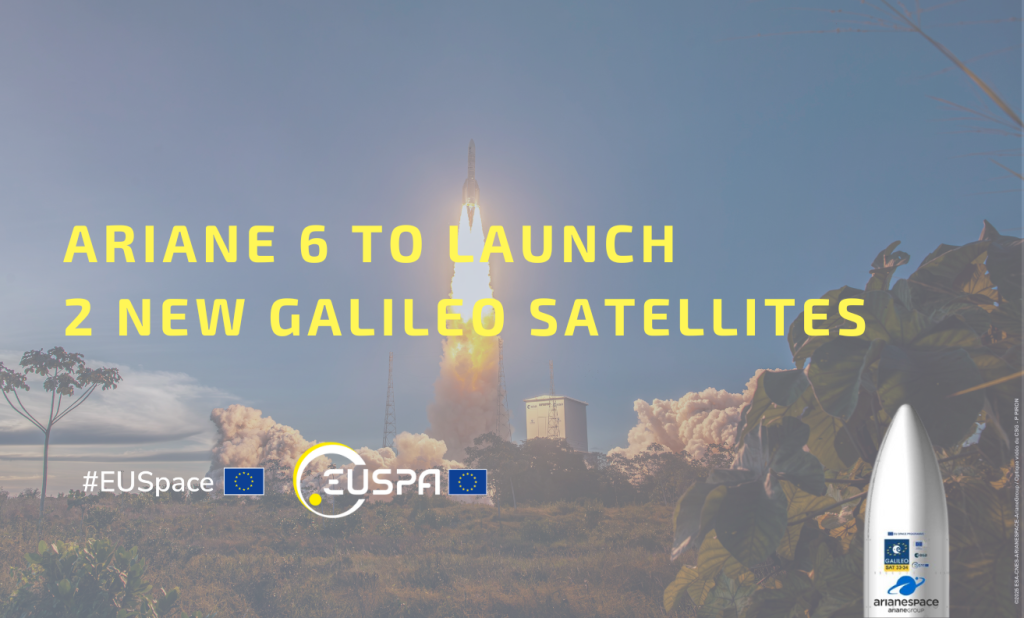Ariane 6 to launch two new Galileo satellites, strengthening the European Union’s autonomous navigation capability

On 17 December 2025 at 2:01 a.m. local time (5:01 a.m. UTC, 6:01 a.m. CET), a new pair of Galileo satellites will be launched by Arianespace aboard an Ariane 6 rocket from Europe’s Spaceport in French Guiana. The mission, designated VA266, will be the fifth flight of Ariane 6, using the Ariane 62 configuration with two boosters. Launch 14 (L14) is the first-ever Galileo launch on Ariane 6, further consolidating the launcher’s role in supporting the European Union’s flagship navigation system.
The launch is conducted by Arianespace for the European Space Agency (ESA), on behalf of the European Commission and the EU Agency for the Space Programme (EUSPA). In charge of the Galileo exploitation management, EUSPA is responsible for the Launch and Early Orbit Phase (LEOP) and for delivering high-quality, reliable services to users. The agency ensures that the system performance meets evolving market needs, fosters innovation across the downstream sector, and connects the technical assets of the EU Space Programme with the industries and communities that depend on them.
The two satellites, SAT 33–34, will be deployed into medium Earth orbit (MEO) at approximately 22,922 km, with separation occurring 3 hours and 55 minutes after lift-off. They will then gradually reach their operational orbit at 23,222 km. Once in service, the satellites will reinforce the first-generation Galileo constellation, improving the precision, availability and robustness of European Union’s global navigation satellite system.
Galileo provides highly accurate positioning, navigation and timing services, with real-time accuracy down to the metre range. It underpins applications across mobility, agriculture, emergency management, climate monitoring, security and countless digital services.
With the Galileo L14 launch, the European Union continues to strengthen its secure and autonomous navigation capability, ensuring that millions of users worldwide benefit from resilient, high-performance Galileo services today and in the years to come.
About Galileo
Galileo, the EU´s Global Navigation Satellite System (GNSS), provides improved navigation, positioning and timing information. More than 4 billion users are already benefitting from Galileo.
The Galileo Programme is owned by the EU. The European Commission, as the Programme Manager, oversees the implementation of all activities. EUSPA is responsible for the operational management of the services, ensuring that they are delivered with the defined performance and without interruption. Galileo's system design and system evolution are entrusted by EUSPA to ESA .
Media note: This feature can be republished without charge provided the European Union Agency for the Space Programme (EUSPA) is acknowledged as the source at the top or the bottom of the story. You must request permission before you use any of the photographs on the site. If you republish, we would be grateful if you could link back to the EUSPA website.